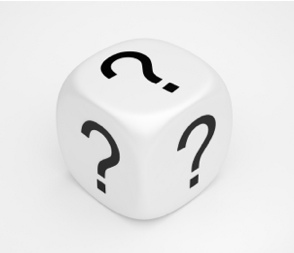
“What is a disease?”
It would be nice to think that this is the kind of question where there are clear-cut, fact-based answers to be had. “Disease” is a term that seems to pick out a category of biological conditions, and biologists are pretty good with categorization.
A disease might be a particular physiological state that is incompatible with the proper functioning of an organism (say, because that state interferes with extracting nutrients from food, or expelling waste products, or oxygenating blood and moving it around the body). Or, from the geneticist’s point of view, a disease might be a bundle of traits (connected to a bundle of genes) that interferes with an organism’s ability in a particular environment to successfully reproduce before shuffling off this mortal coil. (Note that this makes sickle cell anemia – which is thought to provide some protection against malaria – a condition that counts as a disease in malaria-free environments but doesn’t count as a disease where malaria is endemic.)
Biological definitions of “health” as the proper functioning of a human body, or in terms of traits which contribute to reproductive success, would seem to be straightforward.
But humans are very peculiar organisms.
First off, we typically view our health in terms other than whether we’ve passed our genes on to the next generation. Indeed, many women control their fertility in the interests of their health, rather than having as many babies as possible.
More to the point, we have our own opinions about what it means for our bodies to be functioning properly or improperly. Some of this is influenced by our contact with health care providers, who may be able to detect issues like high blood pressure that have escaped our notice. Some of it is shaped by pharmaceutical advertising that makes us aware of newly classified syndromes for which there are now treatments (that just happen still to be on patent).

I’m in a Medical Anthropology class this semester, and it is really fascinating to learn about how different cultures have such different ways to view, classify, and deal with “disease.” Apparently in some parts of Africa the bloody urine resulting from schistomiasis is so common that when boys start to develop the extremely dark urine (it takes a few years for the infection to develop and this symptom tends to hit around puberty) it is thought to be a male analogue to menarche. This is just one example, it’s also interesting to consider how our definitions of disease in relation to mental health have changed over just the past century.
Janet – Suppose biological functions are understood as adaptations that developed via natural selective processes. That doesn’t underwrite a simple equation of normal function with passing on genes to the next generation. One of the functions of the mammalian heart is to propel blood through a network of arteries and veins. We can devise measures of how well it does this without so much as a glance at reproductive behavior.
Also, you need to distinguish sickle cell trait from sickle cell anemia. It’s the former, not the latter, that is thought to confer protection against malaria.
It’s interesting – the problem you get from drinking Drano is not considered disease, and neither are most sorts of fast-acting poisonings. Even the polonium poisoning of that Russian former spy wasn’t considered a disease (I think). And yet there are other similar effects that are considered diseases, like black lung disease. That example I think shows that it doesn’t need to be genetic or caused by an infection in order to be a disease, even though paradigmatic diseases generally are.
Observations of the sort made by Kenny Easwaran have prompted some people who study this issue to use a broader term than ‘disease,’ namely, ‘pathological condition.’ The linguistic differences marked by terms like ‘disease,’ ‘wound,’ ‘injury,’ etc., don’t correspond very well with scientific concerns, but do fall nicely under the umbrella of ‘pathology.’
I think you’re touching on a different distinction, Kenny. Consider that in each case — drinking Drano, ingesting polonium, or breathing coal dust — you could call the result “illness”. In general we use the word “disease” for a chronic or long-term condition, while “illness” could apply to either an acute or a chronic health problem. It is not the cause that matters for this distinction, but the phenomenon. If the Russian gentleman had survived the acute poisoning event and later developed an unusual cancer, we would call that a disease even though it resulted directly from a poisoning.
To me, this seems to miss the central question, which is about the limits of variation that are tolerated before a system (in this case a human being) is viewed as unacceptably deranged. Because this is always in reference to some norm, traits considered “diseased” will vary between societies and environments, especially so with respect to mental illnesses.
Is alcoholism a disease?
Public radio had an essay on this weekend describing a “laughing disease.” Apparently there was a large outbreak of laughing someplace in Africa in the sixties. It was a sort of viral thing, with whole villages breaking out in uncontrollable laughter, so they called it a “disease.” Is that a correct use of the word?
How about:
A pathological phenomenon, caused either by intrinsic or extrinsic factors, that, in the absence of therapeutic intervention, will have an adverse effect on the normal quality and/or the duration of life of an organism.
That was somewhat off-the-cuff, and I need to mull it some more.
Yes.